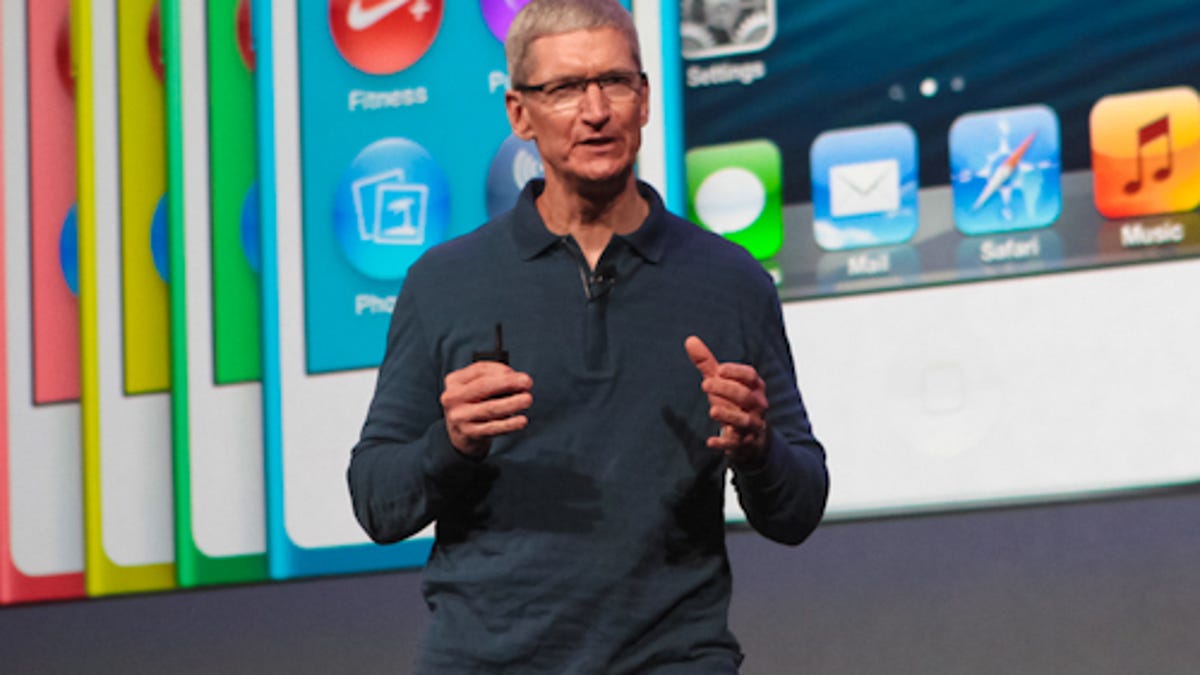Are Apple fans really more loyal?
Every survey seems to suggest that those who buy Apple products are more loyal to the brand than buyers of other brands. Does this also make them more forgiving?

Having faith in other people is often as sensible as having faith that your bus will arrive on time.
People are, by their very nature, mercurial. The current world of supposed sharing often makes them more selfish, as they must spend more time considering how to present themselves publicly at all periods of the day.
It's somewhat surprising, then, that Apple still enjoys the loyalty that it does.
Wander past any Apple store and there always seems to be half the neighborhood in there.
And whenever surveys of brand loyalty are performed, Apple so very often seems to be there at the top. A short while ago, one slightly dubious survey purported to test which brands people would never buy.
BlackBerry seemed everyone's favorite reject. Apple, the least favorite.
This week, a survey by the Yankee Group suggested that iPhone ownership will soar past that of Android by 2015.
It indicated that twice as many people said they intended to buy an iPhone in the future as said they'd buy an Android.
Moreover, it offered that much of this loyalty isn't just inspired by the products themselves, but by the whole Apple ecosystem. The numbers hinted that only 9 percent of Apple owners were looking to Android for their next device, whereas 24 percent of Android owners were ready to be disloyal -- 18 percent intending to go to Apple.
It's not hard to imagine that this might bear some relationship to truth. People who get truly emotional about Android phones seem to be the more technologically inspired insiders who see in Android some greater technical expertise.
It's harder to find those who believe Android wins on, say, aesthetics or any other emotional parameter.
Loyalty and its limits
More fascinating, though, is to wonder how far loyalty stretches.
When you think about those who are loyal to you and vice versa, the relationship is often about overlooking certain foibles.
Yes, she's aggressive when stressed, but I can forgive that because I'm loyal to her. Well, he is boorish when it comes to politics, but, in a crisis, he's always there to help me.
Though the supposed human beings on Wall Street consider loyalty about as meaningful a concept as sauteing snuff, normal, harassed people continue to find a certain simplicity and design sense in Apple which they can trust.
The ecosystem might have its restrictions, but it's relatively easy to navigate. Moreover, the company repays loyalty by having smiling, glaze-eyed people in blue polo shirts ready to help, should something go wrong. Yes, they're actually there at the mall.
The test currently is whether with this loyalty will come a tinge of forgiveness. A considerable cross-section of humanity is infused with an insatiable desire for the next thing, even before the latest thing has become oh, that old thing from six months ago.
Their expectations have been irrationally fomented by all the new things tech has allowed them to do -- like meet people in a vacuum and paint with their fingers.
Somehow, Apple hasn't quite managed to keep up with this slightly insane desire -- at least in some people's eyes.
The most likely thing to make people less forgiving is if a competing brand comes out with something that makes Apple suddenly seem truly stale.
It's like that look of marginal disdain in movies that a wife gives her aging husband, just before she goes off with a pool boy/rich man/biker/woman. (Movies do peddle stereotypes, don't they?)
Samsung, Google Glass, and the ghosts of technology yet to come
Samsung has certainly made some progress with its larger screens. That hasn't quite yet dulled Apple's sheen in the eyes of the everyday human, although it's done some damage.
Some believe that Google Glass might entirely revolutionize the whole market.
They believe that the new, new future is everyone placing their portable computers on their noses, so that they can have both hands free to pick them.
It's certainly a different form of thinking.
Ultimately, though, loyalty toward Apple may follow the same lines as loyalty in any relationship. You stay because it still means something to stay or you don't see sufficient attractions anywhere else to make you leave.
You stay because you still believe things will get better and, despite everything, you still feel a sense of comfort. You might think that people are trapped in Apple's ecosystem, but if they don't feel trapped they aren't.
"Should I stay or should I go?" might depend on the supposedly "amazing" products that, according to Tim Cook on last Tuesday's earnings call, are coming in the fall.
I fancy, though, that loyalty to Apple isn't something that will erode in a flash.

